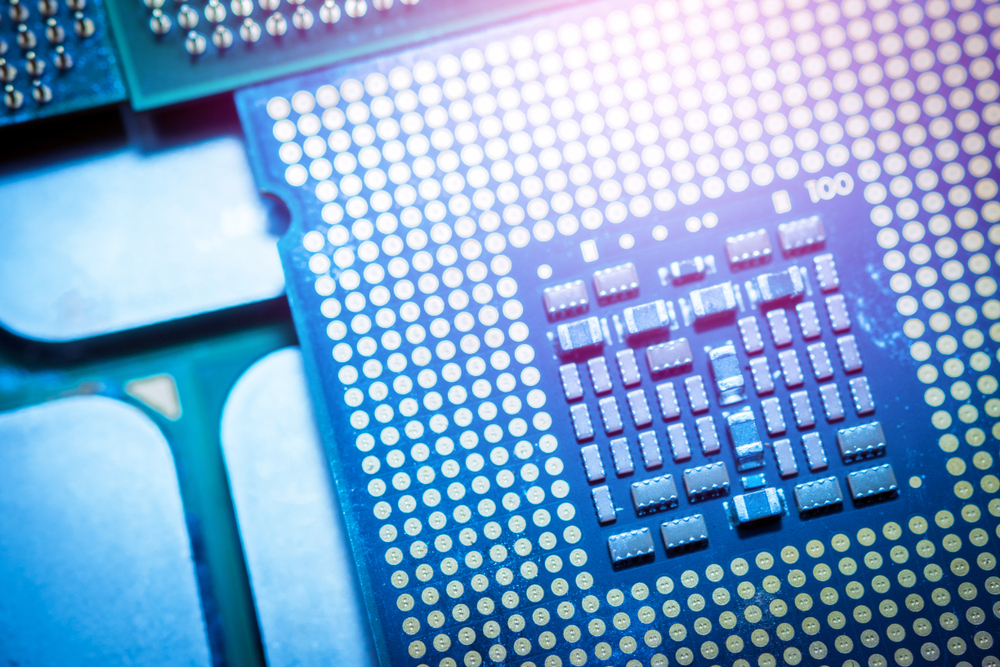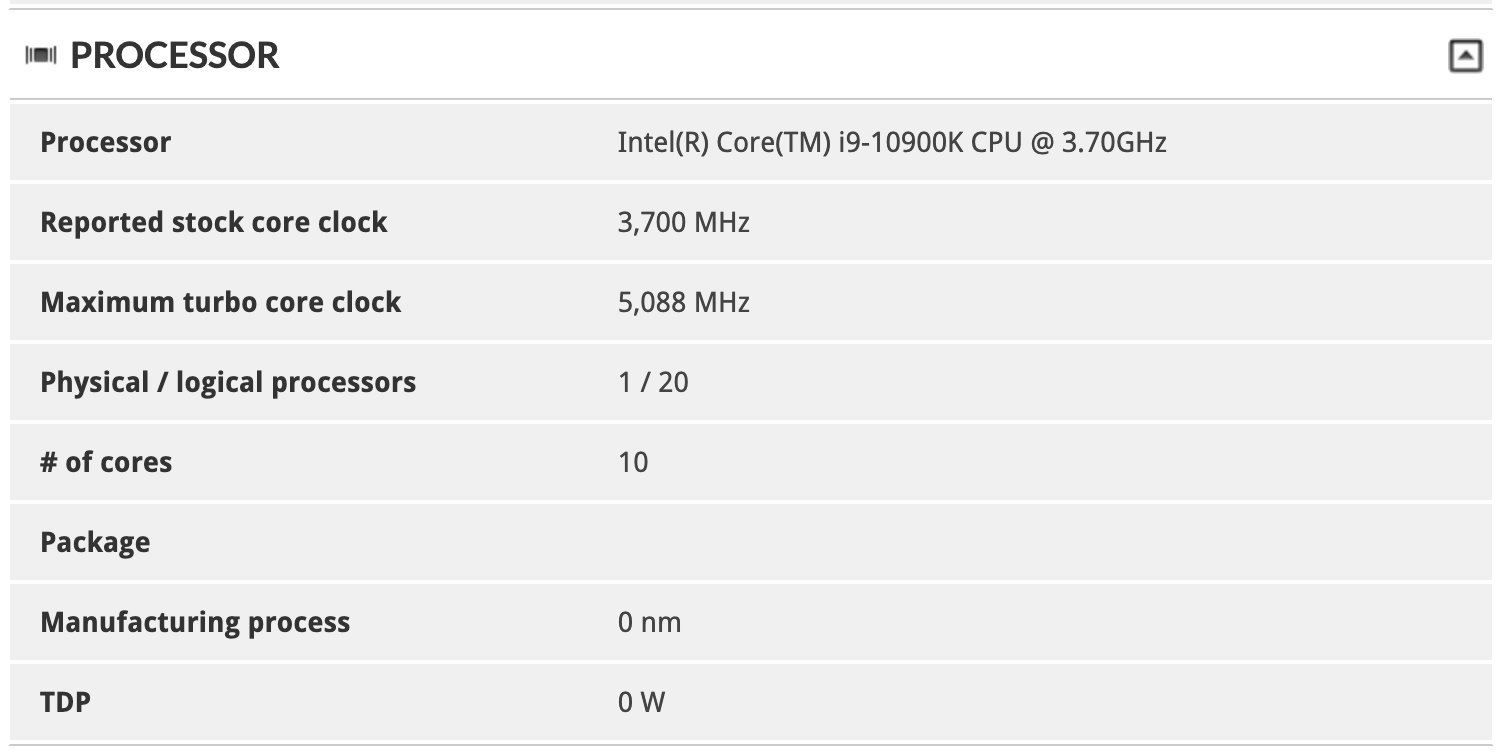Intel Core i9-10900K Listed With 5.1 GHz Boost Clock
The Intel Core i9-10900K is next in line to replace the i9-9900K. And as spotted by Twitter user @_rogame, it recently landed in the 3DMark database.
Based on the Comet Lake microarchitecture, the i9-10900K could be the last flagship processor to come out of Intel's 14nm process node. The processor has 10 cores, 20 threads, and rumors point to a 20MB cache.
The 3DMark result detected the i9-10900K with a 3.7 GHz base clock and 5.1 GHz boost clock, which coincide with the figures from a previous leak. The 5.1 GHz reportedly corresponds to the 10-core chip's single-core boost clock. However, the i9-10900K is rumored to exploit Intel's Turbo Boost Max Technology 3.0 and Thermal Velocity Boost (TVB) features, which will enable it to boost to 5.2 GHz and 5.3 GHz, respectively.
The i9-10900K will only fit inside Intel's new LGA1200 socket, so it will require you to buy a new motherboard based on one of the 400-series chipsets. However, you will be able to reuse your cooling solution since CPU coolers that support the LGA115x socket should work fine on the LGA1200 socket since both seeming have identical dimensions and mounting holes. That should be the least of your worries though. The big question is whether your CPU cooler can handle the i9-10900K's hotness.
One early report suggests that the i9-10900K's maximum power consumption is off the charts. When pushed to the limit, the 10-core chip is rumored to draw over 300W. That's a jaw-dropping number considering that would put the i9-10900K's power consumption in the same ballpark of the AMD Ryzen Threadripper 3970X 32-core monster.
Intel is expected lo launch the Comet Lake desktop processors in the middle of April. It won't be long before we see whether the chipmaker was successful in optimizing the i9-10900K's power consumption to a reasonable limit.
Get Tom's Hardware's best news and in-depth reviews, straight to your inbox.

Zhiye Liu is a news editor, memory reviewer, and SSD tester at Tom’s Hardware. Although he loves everything that’s hardware, he has a soft spot for CPUs, GPUs, and RAM.
-
octavecode 10 cores 14nm chip,add a huge heasink/fan and you got yourself a really expensive room heater.Reply -
tiggers97 Reply
I'm thinkinkg removing the side panel of a case, and just puting a 20" house fan in it's place should work....octavecode said:10 cores 14nm chip,add a huge heasink/fan and you got yourself a really expensive room heater. -
derekullo Reply
As your room slowly heats up to 50°C ...tiggers97 said:I'm thinkinkg removing the side panel of a case, and just puting a 20" house fan in it's place should work.... -
sirocu Yes, some brands of CPUs can get even hotter, but still can't reach to 5.0HGz. :ROFLMAO:Reply -
kyzarvs Replysirocu said:Yes, some brands of CPUs can get even hotter, but still can't reach to 5.0HGz. :ROFLMAO:
whichever way you look at it, 14nm doesn't cut it. Too hot, no space for cores - why would anyone buy one? -
AFoxNamedXyler Replysirocu said:Yes, some brands of CPUs can get even hotter, but still can't reach to 5.0HGz. :ROFLMAO:
You aren't getting 5.1ghz on all 10 cores with a Hyper 212Evo, just saying :) -
gggplaya Yea, boost clock on this chip is really an irrelevant number. Once you load up those cores, this thing will throttle like crazy from all the heat.Reply
It will be interesting to see this thing go up against my 3900x. -
TerryLaze Reply
What heat are you talking about?gggplaya said:Yea, boost clock on this chip is really an irrelevant number. Once you load up those cores, this thing will throttle like crazy from all the heat.
It will be interesting to see this thing go up against my 3900x.
The only use case where heat will be a problem is in full AVX load and whoever uses that already knows not to use the highest clocks possible.
In any other workload power usage is extremely low and on the same general level as ryzen 3xxx series.
Source: https://www.tomshardware.com/reviews/ryzen-9-3900x-7-3700x-review,6214-3.html
i9-9900k default settings in AIDA 113W ,R7 3700X with PBO 111W, same thing.

